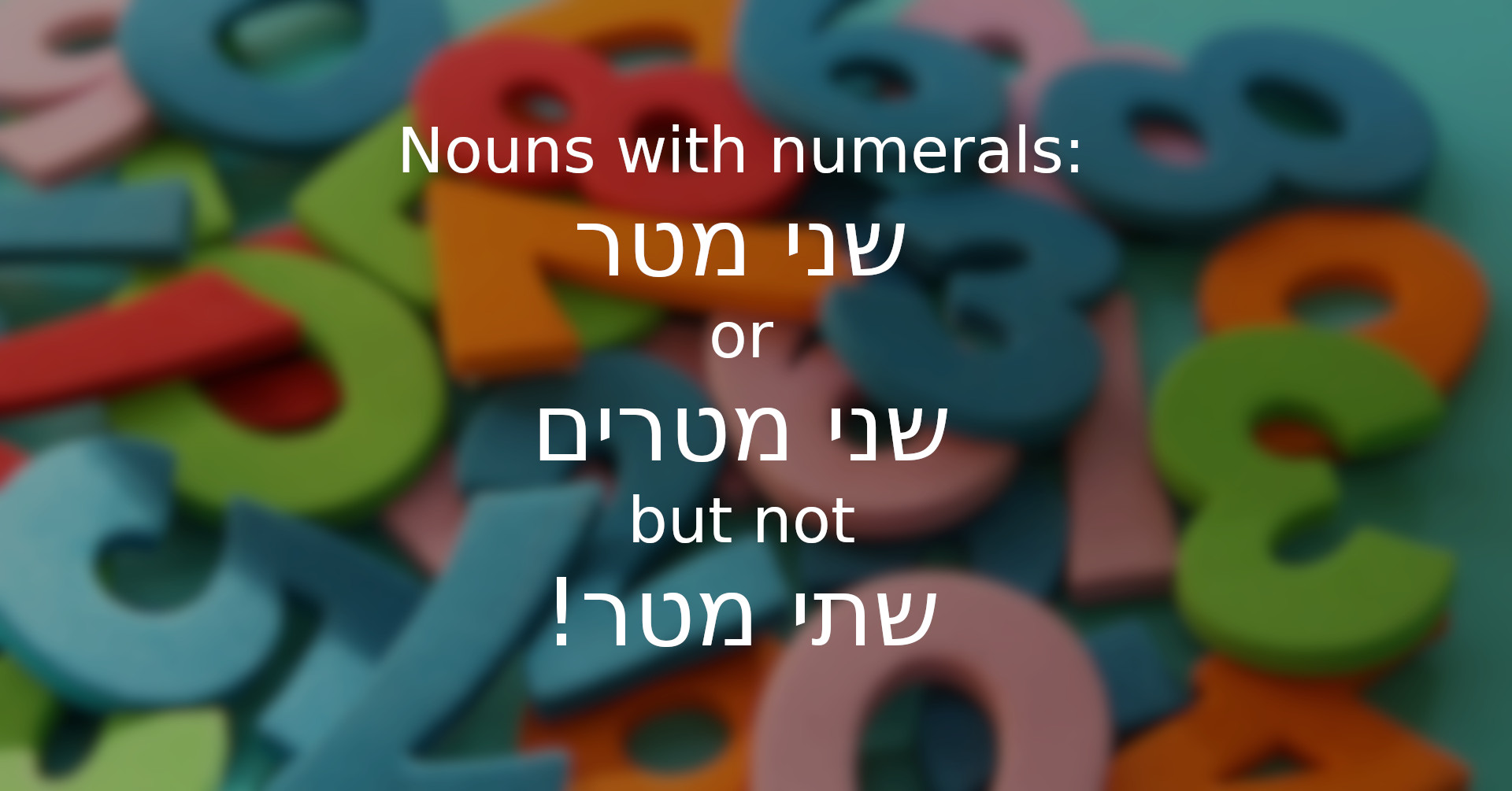Numerals and Nouns - singular vs. plural
10 May 2020

In these times of self-isolation, Hebrew Academy is saying in its Twitter that we should stay away shnei metrim or shnei meter (two metres) and not shtei meter from each other.
The rules the Academy reminds us of are the following:
- If the noun is of foreign origin (like dolar "dollar" or meter "metre" — or, in the US spelling, "meter"), then the noun can be either in singular or in plural: shnei metrim or shnei meter (two metres), chamisha dolarim or chamisha dolar (five dollars).
- The numeral should agree with the noun in all cases! So and are wrong. This is not observed by everyone in practice. A gangsta rapper will say tesha milimeter (meaning "9 mm") if he (or she) is speaking about gun bullets — and it's perfectly acceptable for you to speak in the same manner if you want to fit in — but it's still not grammatical.
- If the noun is of Semitic origin (for example, shekel) and the number is 10 or less, you can't use the singular form: chamesh shanim, asara shkalim (and not "chamesh shana", "asara shekel" or "eser shekel").
- For numbers starting with 11, you can put the numeral either in the singular or in the plural: elef shekel "thousand shekels", esrim shana (twenty years). Singular nouns with numbers more than 10 are not wrong, nor are they a modern invention — they also appear in the books of Torah, for example: vaychi Shet chamesh shanim u-me'a shana "And Seth lived a hundred and five years" (this is from Genesis 5:6), literally "five years and hundred years" — in Modern Hebrew, no one says so — one just says the entire numeral and the noun, more or less like in English.
Note that all this goes beside the basic rules of using Hebrew numerals: the numeral goes before the noun (unless it's number one, in which case it goes after the noun), and the numeral should agree in gender with the noun, and feminine forms are also used for counting — but this is outside the scope of this article.
Just for your reference, the table with all Hebrew numerals from 1 to 10 is here. You can click on any row in the table to see the full inflection — including the construct forms and pronominal forms. We'll publish some posts on how to use those forms at some time later.